Gram negative enteric bacteria
Gram Negative Enteric Bacteria. Introduction of gram negative bacilli (gnb) bacteria ‘gram positive negative (gnb)‘ is also called gram negative rods (gnr) bacteria which take safranin after decolorization and stain pink or red on gram’s staining. The predominant species was chrysomya megacephala (n=276, 22.5%). Microscopically, there is a space that is seen between the cell membrane and the cell wall, known as the periplasmic space made up of periplasm. One hundred thirty bacterial cultures from 16 leukemia patients and 16 control subjects, were obtai.
(94).jpg “Do You Know About Gramnegative Bacteria? Quiz ProProfs Quiz”) Do You Know About Gramnegative Bacteria? Quiz ProProfs Quiz From proprofs.com
The enterobacteriaceae are a loose collection of gram negative rods that can infect the gi system in humans and animals. Gnb cause a wide variety of infections involving diverse anatomic sites in both healthy and compromised. Although they hold in common their capacity to infect the gi system, a variety of species can infect other organs and cause significant pathology. Other reservoirs include water, plants, soil, and gastrointestinal tract of other animals. Coli, klebsiella sp, enterobacter sp, citrobacter sp., proteus sp., etc) include a large number of gram negative bacilli that are normal colonizers of the human gastrointestinal tract. Enterobacteriaceae are the most commonly.
The predominant species was chrysomya megacephala (n=276, 22.5%).
Coli, klebsiella sp, enterobacter sp, citrobacter sp., proteus sp., etc) include a large number of gram negative bacilli that are normal colonizers of the human gastrointestinal tract. Hydrogen sulfide is produced by the action of the bacteria with sodium thiosulphate. Microscopically, there is a space that is seen between the cell membrane and the cell wall, known as the periplasmic space made up of periplasm. These substances, cell envelope (cytoplasmic membrane, peptidoglycan, outer membrane) endotoxins, have a variety of pathophysiologic effects that are summarized in chapter 9. Introduction of gram negative bacilli (gnb) bacteria ‘gram positive negative (gnb)‘ is also called gram negative rods (gnr) bacteria which take safranin after decolorization and stain pink or red on gram’s staining. Quizlet flashcards, activities and games help you improve your grades.
 Source: slideserve.com
Source: slideserve.com
The predominant species was chrysomya megacephala (n=276, 22.5%). These substances, cell envelope (cytoplasmic membrane, peptidoglycan, outer membrane) endotoxins, have a variety of pathophysiologic effects that are summarized in chapter 9. This is detected by the reduction of ferric ions to produce a black precipitate. Coli, klebsiella sp, enterobacter sp, citrobacter sp., proteus sp., etc) include a large number of gram negative bacilli that are normal colonizers of the human gastrointestinal tract. These substances, cell envelope (cytoplasmic membrane, peptidoglycan, outer membrane) endotoxins, have a variety of pathophysiologic effects that are summarized in chapter 9.
(94).jpg “Do You Know About Gramnegative Bacteria? Quiz ProProfs Quiz”) Source: proprofs.com
Microscopically, there is a space that is seen between the cell membrane and the cell wall, known as the periplasmic space made up of periplasm. These substances, cell envelope (cytoplasmic membrane, peptidoglycan, outer membrane) endotoxins, have a variety of pathophysiologic effects that are summarized in chapter 9. Its classification above the level of family is still a subject of debate, but one classification places it in the order enterobacterales of the class gammaproteobacteria in the phylum pseudomonadota. This study placed special emphasis on enteric microorganisms and their relation to the general status of the patient. The most of gnr bacteria are medically important and among them few are escherichia coli, klebsiella pneumoniae, salmonella.
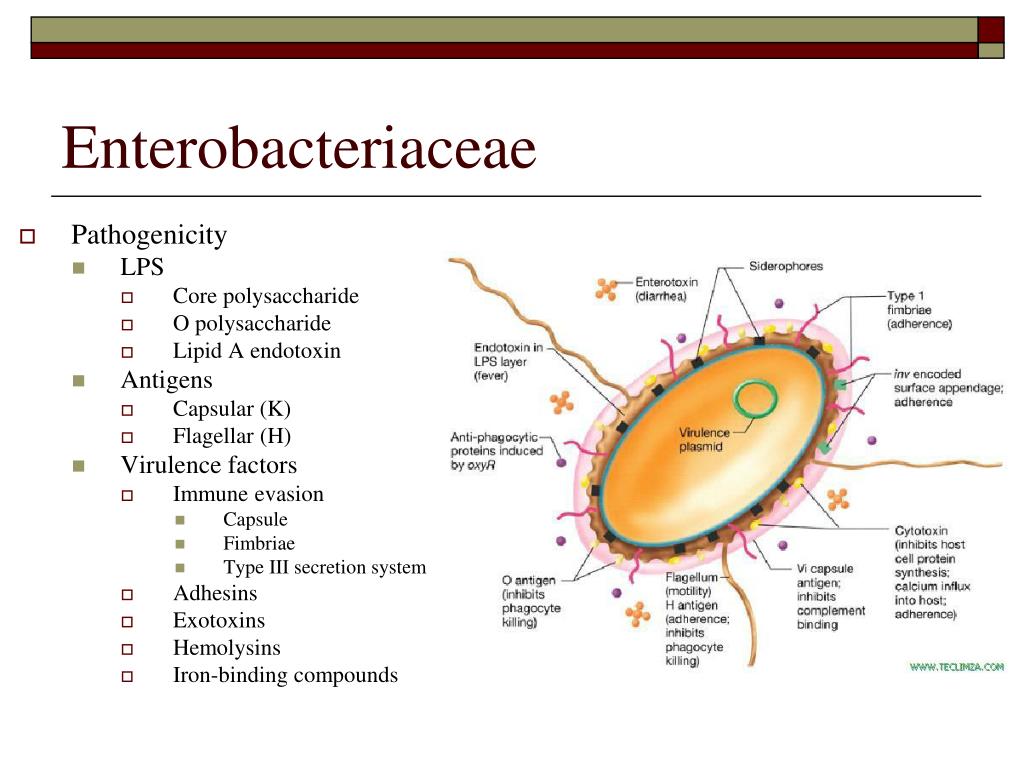 Source: slideserve.com
Source: slideserve.com
Outbreak investigations in the past 3 years, the division of healthcare quality promotion has assisted in at least 10 investigations of outbreaks of gram negative infections. One hundred thirty bacterial cultures from 16 leukemia patients and 16 control subjects, were obtai. Additionally, enterobacteriaceae produce a wide. Antimicrobial agents are usually the part of their treatment. These substances, cell envelope (cytoplasmic membrane, peptidoglycan, outer membrane) endotoxins, have a variety of pathophysiologic effects that are summarized in chapter 9.
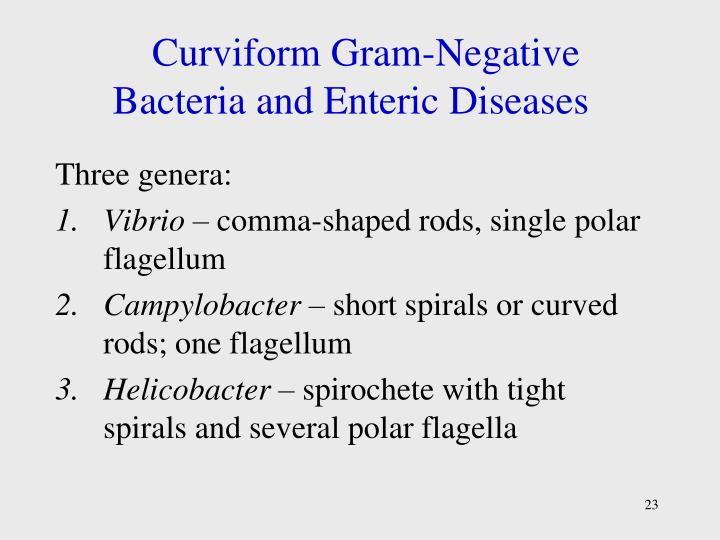 Source: slideserve.com
Source: slideserve.com
Background diarrhoea is the leading cause of morbidity and mortality in the world particularly in developing countries and among vulnerable groups of the population. Microscopically, there is a space that is seen between the cell membrane and the cell wall, known as the periplasmic space made up of periplasm. Other reservoirs include water, plants, soil, and gastrointestinal tract of other animals. Coli., as well as many other less common bacteria. This is detected by the reduction of ferric ions to produce a black precipitate.
 Source: researchgate.net
Source: researchgate.net
In addition to playing a significant role in the intestines , enterobacteriaceae may be found in the genitourinary tract and can, in some cases, cause urinary tract infections. Coli., as well as many other less common bacteria. Microscopically, there is a space that is seen between the cell membrane and the cell wall, known as the periplasmic space made up of periplasm. Quizlet flashcards, activities and games help you improve your grades. The enterobacteriaceae are a loose collection of gram negative rods that can infect the gi system in humans and animals.
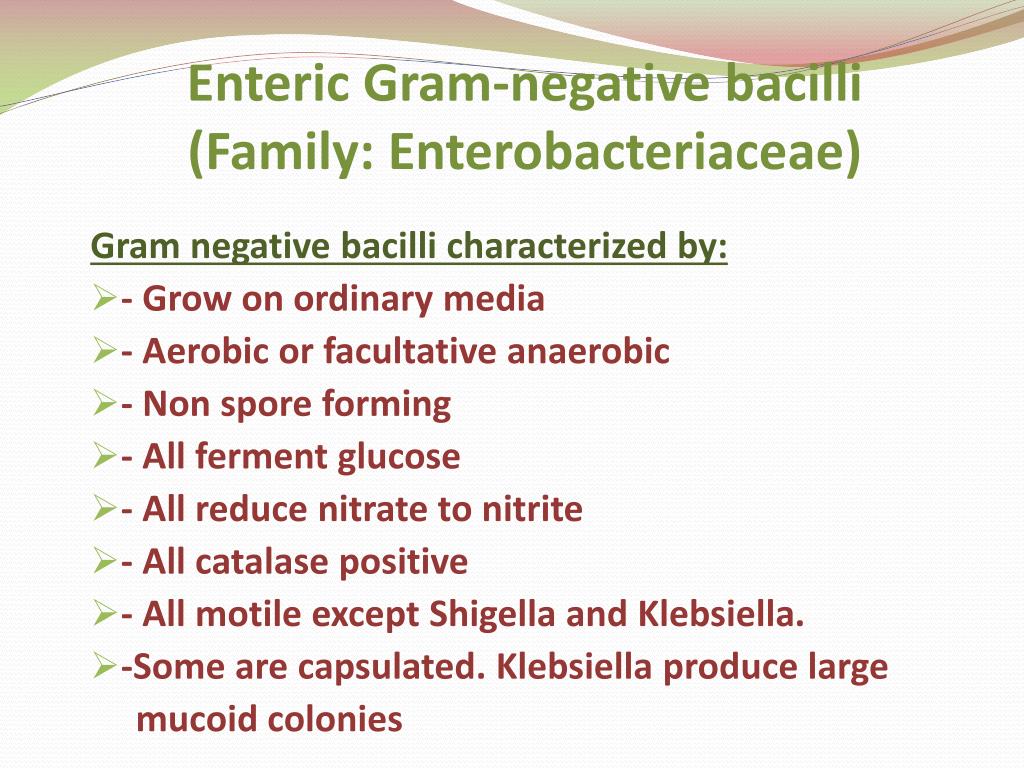 Source: slideserve.com
Source: slideserve.com
Although they hold in common their capacity to infect the gi system, a variety of species can infect other organs and cause significant pathology. Additionally, enterobacteriaceae produce a wide. A total of 1,228 flies were collected from 6 sites around chengdu shuangliu international airport from april to september 2011. Background diarrhoea is the leading cause of morbidity and mortality in the world particularly in developing countries and among vulnerable groups of the population. These substances, cell envelope (cytoplasmic membrane, peptidoglycan, outer membrane) endotoxins, have a variety of pathophysiologic effects that are summarized in chapter 9.
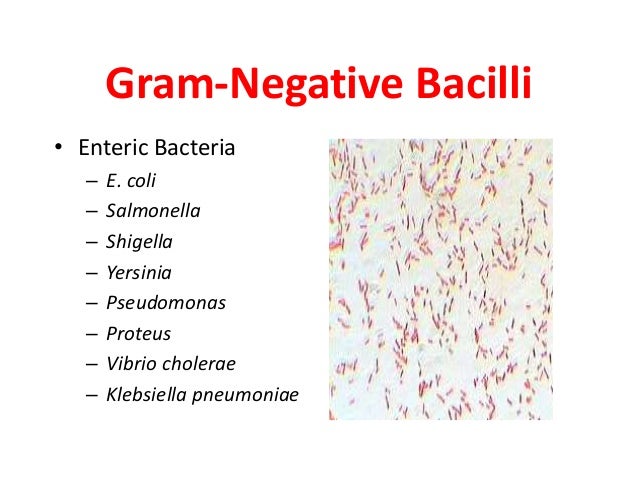 Source: slideshare.net
Source: slideshare.net
Background diarrhoea is the leading cause of morbidity and mortality in the world particularly in developing countries and among vulnerable groups of the population. Outbreak investigations in the past 3 years, the division of healthcare quality promotion has assisted in at least 10 investigations of outbreaks of gram negative infections. Its classification above the level of family is still a subject of debate, but one classification places it in the order enterobacterales of the class gammaproteobacteria in the phylum pseudomonadota. The enterobacteriaceae are a loose collection of gram negative rods that can infect the gi system in humans and animals. The predominant species was chrysomya megacephala (n=276, 22.5%).
 Source: what-when-how.com
Source: what-when-how.com
Quizlet flashcards, activities and games help you improve your grades. The most of gnr bacteria are medically important and among them few are escherichia coli, klebsiella pneumoniae, salmonella. Coli, klebsiella sp, enterobacter sp, citrobacter sp., proteus sp., etc) include a large number of gram negative bacilli that are normal colonizers of the human gastrointestinal tract. Its classification above the level of family is still a subject of debate, but one classification places it in the order enterobacterales of the class gammaproteobacteria in the phylum pseudomonadota. Microscopically, there is a space that is seen between the cell membrane and the cell wall, known as the periplasmic space made up of periplasm.
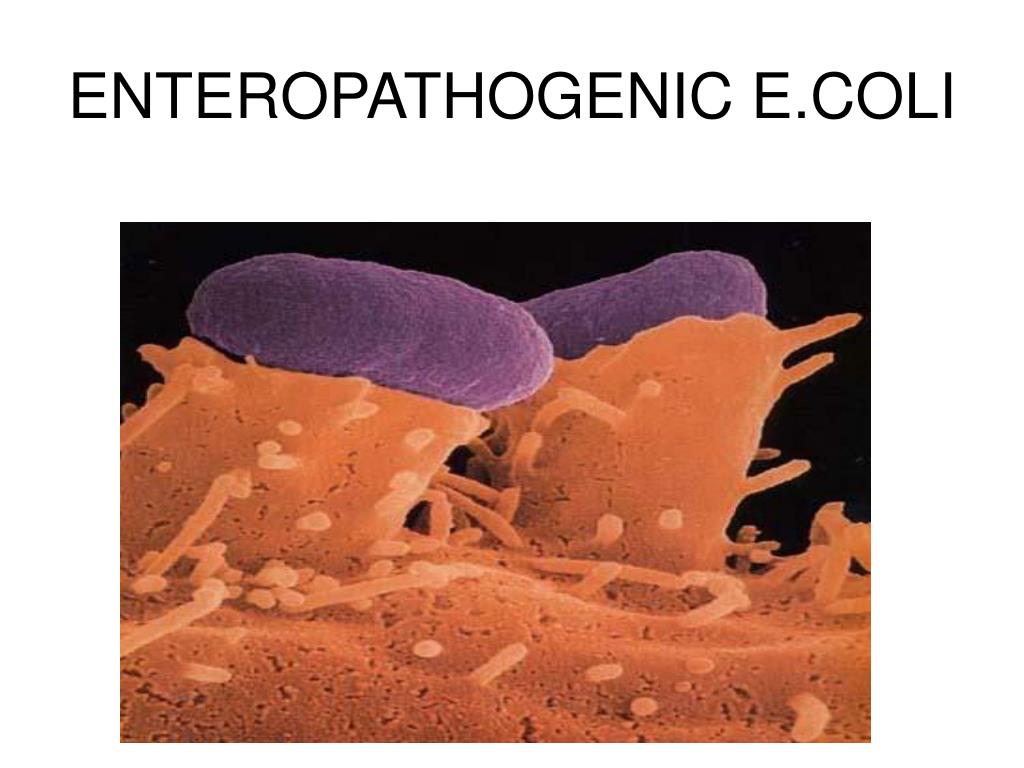 Source: slideserve.com
Source: slideserve.com
Coli, klebsiella sp, enterobacter sp, citrobacter sp., proteus sp., etc) include a large number of gram negative bacilli that are normal colonizers of the human gastrointestinal tract. Coli, klebsiella sp, enterobacter sp, citrobacter sp., proteus sp., etc) include a large number of gram negative bacilli that are normal colonizers of the human gastrointestinal tract. In addition to playing a significant role in the intestines , enterobacteriaceae may be found in the genitourinary tract and can, in some cases, cause urinary tract infections. A total of 1,228 flies were collected from 6 sites around chengdu shuangliu international airport from april to september 2011. Enterobacteriaceae are the most commonly.
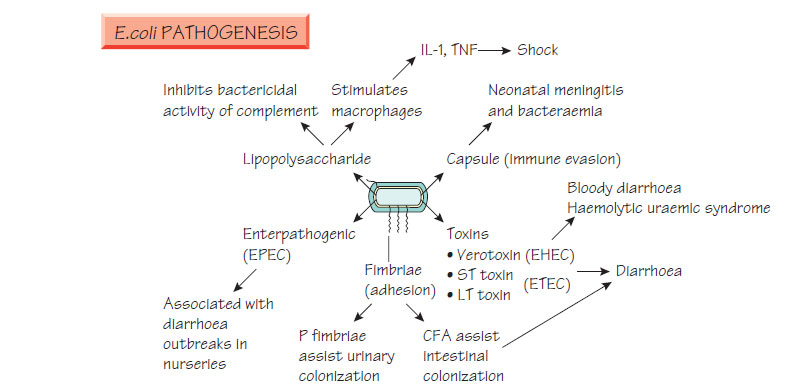 Source: biocyclopedia.com
Source: biocyclopedia.com
The enterobacteriaceae are a loose collection of gram negative rods that can infect the gi system in humans and animals. Antimicrobial agents are usually the part of their treatment. Background diarrhoea is the leading cause of morbidity and mortality in the world particularly in developing countries and among vulnerable groups of the population. These substances, cell envelope (cytoplasmic membrane, peptidoglycan, outer membrane) endotoxins, have a variety of pathophysiologic effects that are summarized in chapter 9. Other reservoirs include water, plants, soil, and gastrointestinal tract of other animals.
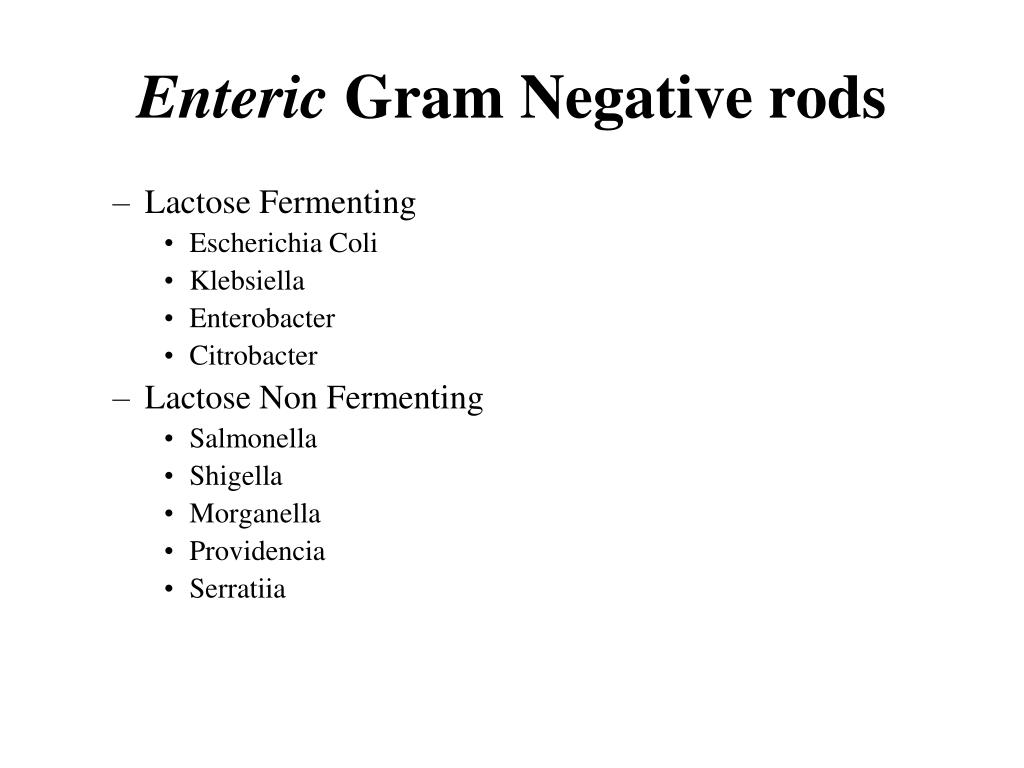 Source: slideserve.com
Source: slideserve.com
The enterobacteriaceae are a loose collection of gram negative rods that can infect the gi system in humans and animals. Its classification above the level of family is still a subject of debate, but one classification places it in the order enterobacterales of the class gammaproteobacteria in the phylum pseudomonadota. They are characterized by their cell envelopes, which are composed of a thin peptidoglycan cell wall sandwiched between an inner cytoplasmic cell membrane and a bacterial outer membrane. Hydrogen sulfide is produced by the action of the bacteria with sodium thiosulphate. This is detected by the reduction of ferric ions to produce a black precipitate.
 Source: basicmedicalkey.com
Source: basicmedicalkey.com
Other reservoirs include water, plants, soil, and gastrointestinal tract of other animals. Additionally, enterobacteriaceae produce a wide. Introduction of gram negative bacilli (gnb) bacteria ‘gram positive negative (gnb)‘ is also called gram negative rods (gnr) bacteria which take safranin after decolorization and stain pink or red on gram’s staining. The predominant species was chrysomya megacephala (n=276, 22.5%). Antimicrobial agents are usually the part of their treatment.
 Source: focusedcollection.com
Source: focusedcollection.com
Background diarrhoea is the leading cause of morbidity and mortality in the world particularly in developing countries and among vulnerable groups of the population. Red color is positive and positive organisms are proteus vulgaris,proteus mirabilis,morganella morganii,providencia rettgeri, etc. Gnb cause a wide variety of infections involving diverse anatomic sites in both healthy and compromised. Coli, klebsiella sp, enterobacter sp, citrobacter sp., proteus sp., etc) include a large number of gram negative bacilli that are normal colonizers of the human gastrointestinal tract. A total of 1,228 flies were collected from 6 sites around chengdu shuangliu international airport from april to september 2011.
 Source: researchgate.net
Source: researchgate.net
Enterobacteriaceae are the most commonly. These substances, cell envelope (cytoplasmic membrane, peptidoglycan, outer membrane) endotoxins, have a variety of pathophysiologic effects that are summarized in chapter 9. Coli., as well as many other less common bacteria. Red color is positive and positive organisms are proteus vulgaris,proteus mirabilis,morganella morganii,providencia rettgeri, etc. These substances, cell envelope (cytoplasmic membrane, peptidoglycan, outer membrane) endotoxins, have a variety of pathophysiologic effects that are summarized in chapter 9.
 Source: slideserve.com
Source: slideserve.com
Gnb cause a wide variety of infections involving diverse anatomic sites in both healthy and compromised. A total of 1,228 flies were collected from 6 sites around chengdu shuangliu international airport from april to september 2011. Other reservoirs include water, plants, soil, and gastrointestinal tract of other animals. Hydrogen sulfide is produced by the action of the bacteria with sodium thiosulphate. This study placed special emphasis on enteric microorganisms and their relation to the general status of the patient.
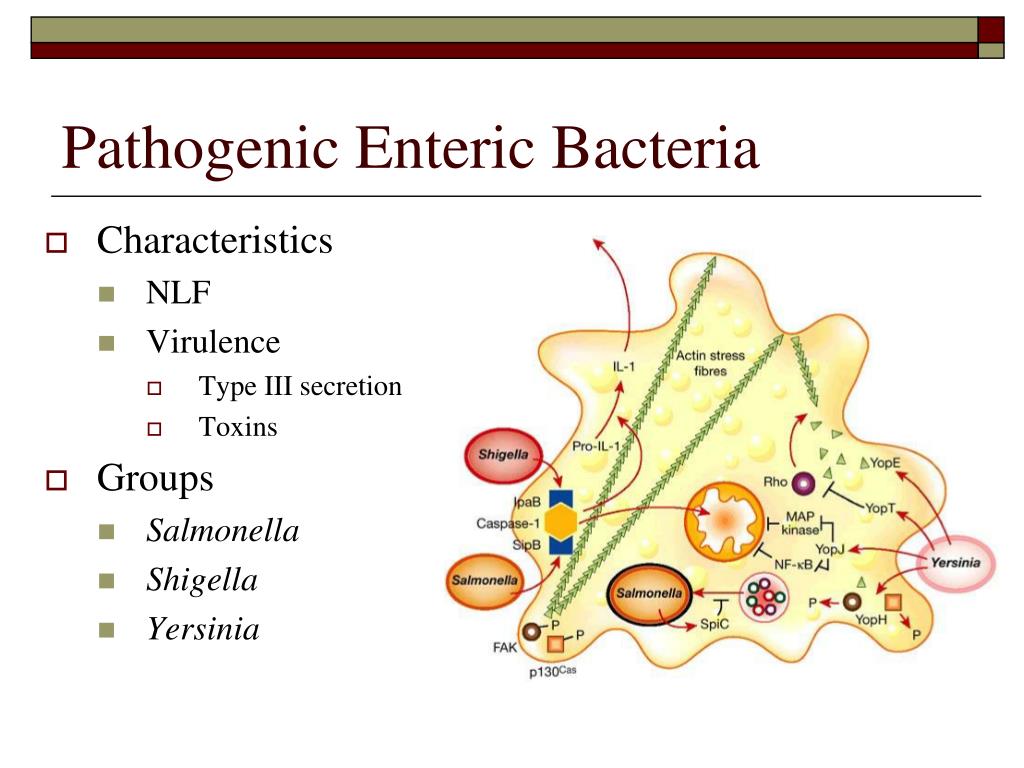 Source: slideserve.com
Source: slideserve.com
These substances, cell envelope (cytoplasmic membrane, peptidoglycan, outer membrane) endotoxins, have a variety of pathophysiologic effects that are summarized in chapter 9. Enterobacteriaceae are the most commonly. Background diarrhoea is the leading cause of morbidity and mortality in the world particularly in developing countries and among vulnerable groups of the population. These substances, cell envelope (cytoplasmic membrane, peptidoglycan, outer membrane) endotoxins, have a variety of pathophysiologic effects that are summarized in chapter 9. Red color is positive and positive organisms are proteus vulgaris,proteus mirabilis,morganella morganii,providencia rettgeri, etc.
 Source: en.ppt-online.org
Source: en.ppt-online.org
Although they hold in common their capacity to infect the gi system, a variety of species can infect other organs and cause significant pathology. Microscopically, there is a space that is seen between the cell membrane and the cell wall, known as the periplasmic space made up of periplasm. This study placed special emphasis on enteric microorganisms and their relation to the general status of the patient. This is detected by the reduction of ferric ions to produce a black precipitate. Antimicrobial agents are usually the part of their treatment.
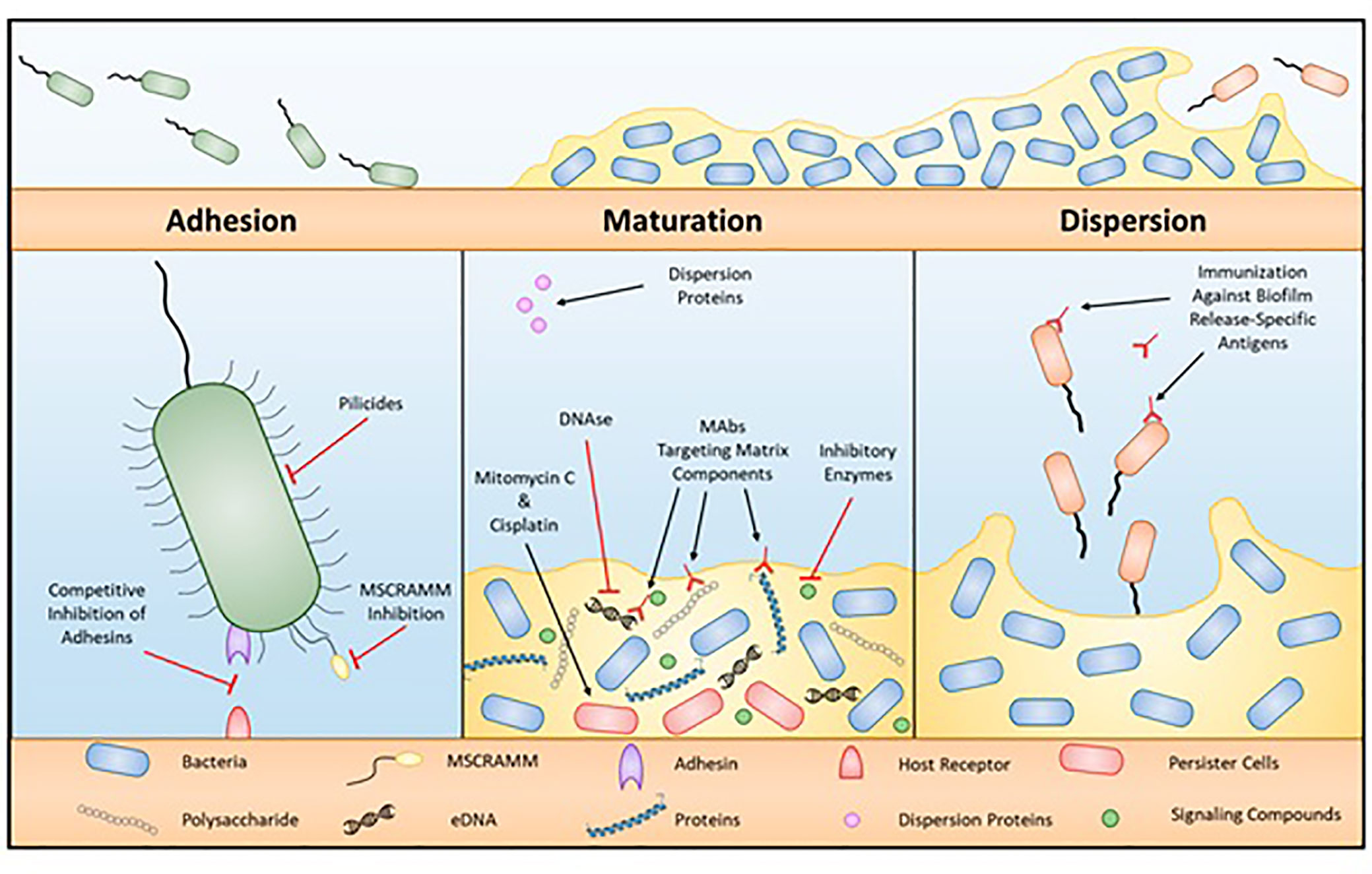 Source: documentdowu.blogspot.com
Source: documentdowu.blogspot.com
Antimicrobial agents are usually the part of their treatment. Although they hold in common their capacity to infect the gi system, a variety of species can infect other organs and cause significant pathology. Background diarrhoea is the leading cause of morbidity and mortality in the world particularly in developing countries and among vulnerable groups of the population. Additionally, enterobacteriaceae produce a wide. Its classification above the level of family is still a subject of debate, but one classification places it in the order enterobacterales of the class gammaproteobacteria in the phylum pseudomonadota.
If you find this site beneficial, please support us by sharing this posts to your preference social media accounts like Facebook, Instagram and so on or you can also save this blog page with the title gram negative enteric bacteria by using Ctrl + D for devices a laptop with a Windows operating system or Command + D for laptops with an Apple operating system. If you use a smartphone, you can also use the drawer menu of the browser you are using. Whether it’s a Windows, Mac, iOS or Android operating system, you will still be able to bookmark this website.





